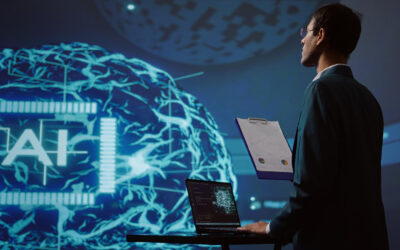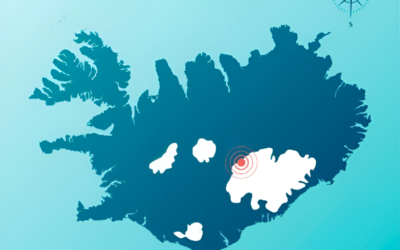All political blocs have already taken a stance with proposals addressing the role of Artificial Intelligence in security and education. What is expected for 2025?
Artificial Intelligence (AI) is a reality in our lives. It is present in schools, workplaces, and financial markets; as well as in the Judiciary, Intelligence Services, and police stations. In this context—and amid the delicate balance between preserving private information and promoting the initiative of creators—Congress representatives are seeking to establish regulatory frameworks for a universe as abstract and unmanageable as it is pervasive in our daily lives.
In general terms, all the proposals express parliamentary enthusiasm for legislating the systems of generation and the practices resulting from the use of AI, with an emphasis on three areas: security, education, and justice. The initial initiatives converged in the Science and Technology Commission, where sector specialists attended and insisted on being considered so as not to take regulatory missteps in the dizzying pace of process innovation. Within this framework, and after consulting with seven legislators and one expert, two specific trends emerged: either creating regulatory frameworks for the sector from scratch or modifying the existing ones with an emphasis on AI.
“There are countless possibilities for legislating AI, and it is necessary and inevitable to do so, but with great seriousness, knowledge, and a scientific basis,” noted Mónica Litza (Unión por la Patria) from Buenos Aires, one of the signatories of the proposal to establish a National Registry of Artificial Intelligence Systems, which aims to create a general register of the actors involved in the sector and to set up a scoring system based on potential risks.
Her parliamentary colleague and co-author of the project, Diego Giuliano from Santa Fe, emphasized that this is a discussion taking place on a global scale and that regulation “does not mean hindering the progress of AI, but rather calling for reasonable regulation.” “We must bring to the table a discussion about the algorithms, the instructions given to AI, and the expertise of the state and specialized institutions so that the use of AI benefits development, education, training, and evolution,” he stated.
Supporting a position for specific changes to current legislation, Pamela Calletti from Salta (Innovación Federal) proposed modifying Law No. 24.240 on Consumer Protection to establish mechanisms for transparency and accountability for damages caused by these systems: “I believe it is necessary to establish a legal framework that protects people’s rights. Obviously, it must respect the logic of the technology in question.” However, she lamented that “Argentina has a data law from before Facebook emerged,” referring to Law No. 25.326 on the Protection of Personal Data (enacted in 2000).
At the same time, Silvana Giudici from Buenos Aires (PRO) analyzed that “in Argentina we have already experienced trying to regulate technological innovation issues and it went very poorly, because regulation is always decades behind innovation,” and for that reason she suggested “adopting a broad and flexible regulatory framework.” “In Congress there are countless proposals that do not follow this direction and become overly prescriptive or extremely restrictive when considering a law,” she asserted, adding that “we must make small interventions based on actions that are illegal.”
This latter stance is shared by Lucas Barreiro, co-founder of Privaia and data protection specialist, who recalled that “there are already several regulatory frameworks that, if refined a bit and adapted to today’s current and contemporary challenges, could be addressed more effectively.” “What happens when there is damage caused by an AI system? Who is responsible—the original developer, the implementer, the one who brought it to market, or ultimately the user?” he asked, suggesting that the solution lies “in the current Civil and Commercial Code, without a doubt. There is no need for a comprehensive law that specifies the entire regulatory framework for AI.”
Juan Brügge from Córdoba (Encuentro Federal) echoed this viewpoint, stating that “if the rules of the National Civil and Commercial Code are applied, there is already a framework of liability for what an AI decides or does,” and he proposed the creation of an Advisory Council on Artificial Intelligence to ensure the responsible use of technology in the country. “The idea behind regulation is to provide more elements to distinguish the different degrees of responsibility between those who design a system, those who use it, and those who are affected,” he commented, emphasizing the need to “establish clear rules of the game for all involved, setting the appropriate conditions so that those who develop these systems meet minimum requirements that help reduce their liability for uses contrary to what was intended.”
Various judicial entities are already extolling the potential of AI applications in investigative processes, while in the field of security, the first parliamentary concerns are emerging in two areas: data breaches and the manipulation of voices and images (known as “deepfakes”), which can even violate sexual privacy. The regulations have not yet been finalized, and the question looms: who is responsible for criminal actions generated by AI?
“It is not appropriate to ban a system or a model, mainly because of the difficulty in pinpointing it. The healthy use that a person can make of that model would be lost,” considered Lucas Barreiro, who pointed out that some generative systems “have already implemented security barriers around the model, and if there is any prompt (a user request) that violates it, they obviously won’t return it. It is different from what happens with open models, because those barriers can be bypassed by developers.”
Deputy Giudici shared a similar view on this debate, summarizing her perspective: “Everything that is illegal in the real world becomes illegal in the virtual world as well. If it is wrong to commit a scam or to use a person’s voice modified by AI, that crime must be sanctioned.” “We must be very careful; the approach should be to penalize the behaviors, penalize the individuals who use these tools to violate privacy or commit a crime, and not attempt to penalize the system or the platform, because a national regulation could not have any effect on them,” she insisted.
Giudici presented a proposal to regulate sanctions against crimes committed through “deepfakes,” an initiative that features similar wording across various political blocs, such as that of Eugenia Alianiello from Chubut (Unión por la Patria), whose team responded to this outlet: “There is a sort of shift from what was previously understood as a specific crime, where there was a real or factual issue. But that does not negate that behind the technological manipulation there is a crime, because, above all, harm is caused.” “The most concrete aspect of the matter is the person harmed,” they reiterated, acknowledging that “we are dealing with something that is constantly transforming and changing, a system with a dynamic that evolves second by second.”
The Peronist bloc expressed another concern: the creation of the Applied Artificial Intelligence for Security Unit (UIAAS), under the auspices of the Ministry of Security. Through Resolution 710/2024 of July 26, the formalization of the unit allowed it to “monitor open social networks,” “analyze real-time images from security cameras,” and “identify unusual patterns in computer networks,” among other functions. Unión por la Patria issued an information request. “There was no response, but they are also not responding to any other requests, almost as a matter of government policy,” they explained to Ámbito.
Lucas Barreiro noted the possibility that UIAAS might use algorithms to “predict future crimes and help prevent them,” considering that this would lead to “a presumption of prior guilt based on one’s digital behavior or background, as a kind of profiling that ignores many other aspects and might even take into account, for example, a person’s place of residence.” “I understand that this is an issue that deserves to be scrutinized by the public and that goes beyond a matter of public security such that it should not be exempt from an information access request,” he added.
Artificial Intelligence for the Future: Education and Industry Promotion
“I am convinced that next year this will be a central issue on the legislative agenda,” stated Oscar Agost Carreño from Córdoba (Encuentro Federal), who also called for adapting the Argentine legal system regarding deepfakes, while also prioritizing the debate on copyright protection for works created with AI. “What happens when a work is created by AI? Is the creator the technology developer or the one who issued the ‘prompt’? What degree of creativity must a ‘prompt’ have to be considered a work?” Barreiro inquired, agreeing that the topic must be included in the upcoming parliamentary agenda.
Among the proposals aimed at legislating to boost the use of AI in the country, the allocation of minimum budgets for the Promotion of Artificial Intelligence Development stands out, authored by Silvana Giudici. She explained, “This is an incentive scheme designed to make Argentina a hub that attracts investments in AI development and new technologies. The sheer volume of scientific advances has set off a global race to capture these investments, and Argentina has significant potential thanks to the new conditions established by the Government.” “Argentina already has five unicorns, and it is very likely that we can take off in terms of new AI developments,” she added.
Another initiative involves a strategic investment: that of Dante López Rodríguez from Catamarca (Unión por la Patria) to create Computer Science and Artificial Intelligence Laboratories in schools. In the educational realm, Juan Brügge emphasized that “it is essential for both students and teachers to be trained in new technologies that will shape the near future. Teachers need to know how to integrate AI tools into the curriculum so that students can benefit,” although he reiterated that it is indispensable “to impart critical thinking to students” as a complement.
“There is potential for AI development in the country because we have highly skilled professionals,” Barreiro reflected, noting that “if talent continues to leave the country and there are no competitive scenarios, that could be a major problem.” He also urged consideration of whether investments in the sector “will primarily come from external actors merely to utilize the workforce—as if it were an attractive job market—or if we will be the ones to own the development of these systems.”
In a context full of opportunities, the consulted legislators agreed that there are still no agreements among the various political blocs to unify projects, even though the implementation criteria—as observed—are not that far apart. There remains one year of debate and careful listening to move forward with concrete steps that establish regulations to maintain that balance: enhancing present-day technology without neglecting the potential harms of the future.






0 Comments